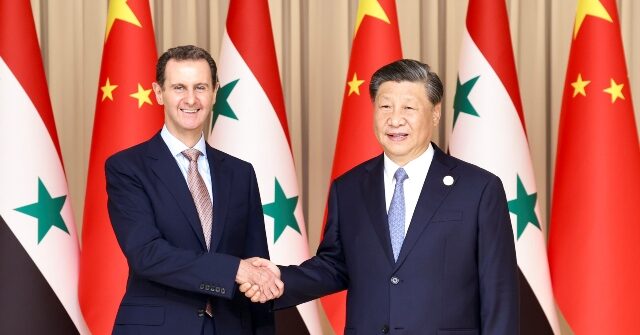On December 7, 2023, the regime of Bashar Assad in Syria fell to the jihadist group Hayat Tahrir al-Sham (HTS), marking a pivotal moment in the Syrian civil war that has ravaged the country for over a decade. The fall of Assad, whose family has ruled Syria for more than 50 years, prompted statements from international actors, including China, which has historically maintained connections with Assad’s regime. In a recent address to the United Nations, Chinese envoy Geng Shuang emphasized that Beijing aims to “play a constructive role” in Syria’s future. Despite China’s longstanding friendship with the Assad regime, the Chinese government has refrained from military involvement and is instead positioning itself to influence Syria economically and diplomatically in the post-Assad landscape.
China has pursued an intricate diplomatic game in the Middle East, leveraging relationships with countries like Iran and slowly increasing its influence through initiatives such as the Belt and Road Initiative (BRI). Since the fall of Assad, China has expressed urgent concerns about stabilizing Syria and has called for the maintenance of state institutions to restore social order. Geng’s remarks highlighted the importance of regional cooperation to address the newly emerged challenges, suggesting China’s readiness to assist in peace efforts, albeit without detailing specifically what that help might entail. Such statements reflect China’s strategic interests in the area—a complex mix of political support and economic opportunities following the drastic changes in Syria’s governance.
The Chinese approach to the evolving situation in Syria has been markedly cautious yet proactive. China’s connections to Iran and alignment with anti-Israel sentiments in the wake of recent conflicts illustrate a broader strategy to increase its Middle Eastern clout, especially amid increasing instability. However, Geng underscored the importance of preventing the use of Syrian territory to perpetuate terrorism that could threaten China’s national security, particularly given Beijing’s concerns about the Uyghur population and allegations of terrorism connected to them. This stance indicates that while China is keen on expanding its influence in Syria, it remains wary of the potential for extremist movements that could undermine its interests.
Experts suggest that any support China provides to the new Syrian regime is likely to be focused on economic reconstruction rather than military engagement. Beijing has successfully positioned itself as a key player in economically vulnerable nations through the BRI, which has often been critiqued as a form of debt diplomacy. The implications of this strategy for Syria are significant, as there are indications that China could seek to extend the BRI to facilitate economic cooperation and reconstruction following Assad’s downfall. Analysts note that the changing political landscape presents an opportunity for China to increase its presence in Syria, turning the power vacuum left by Assad into an opportunity for economic engagement.
Moreover, the possibility of humanitarian efforts as a means to build goodwill with Syrian authorities has been raised. By providing essential aid, China could solidify a relationship with the new government while also enhancing its image as a benevolent player in international relations. This strategy aligns with previous remarks made by Assad during his last visit to China, where he praised China’s commitment to international fairness and humanitarianism. As the new regime navigates the complexities inherent in the post-Assad era, establishing a cooperative relationship with a major world power such as China could be pivotal to its reconstruction and stabilization efforts.
While Beijing’s commentary has largely avoided direct criticism or endorsement of HTS, the organization’s rise poses challenges that cannot be overlooked. The Chinese government appears to be adopting a wait-and-see approach, emphasizing its historical ties to the Syrian people rather than to any single leader. With Assad’s departure, China appears ready to enhance its involvement in the region without being seen as favoring any one faction, signalling a potential shift in its foreign policy dynamics as it carefully evaluates the evolving political landscape in Syria. The situation remains fluid, and China’s next moves will likely reflect a careful balancing act of enhancing its regional influence while avoiding entanglement in local conflicts.

